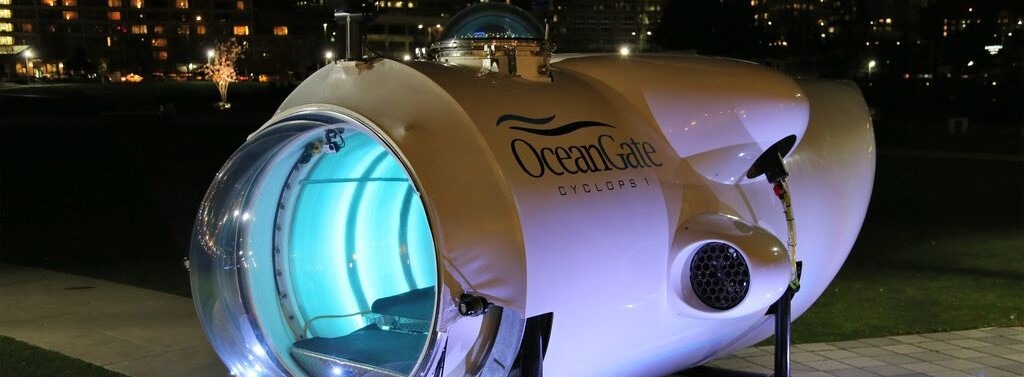Why do we care so much about this?: the OceanGate catastrophe
A recent tragedy sheds light on where political interest lies.
My phone has been constantly buzzing for the past week as news apps race each other in an effort worthy of telemarketers to get my attention. Every major newspaper’s website front page boasts a live section tracking the international effort to find and rescue the victims. Their Instagram feeds are crawling with maps drawing out the progress. The world’s wealthiest nations have redirected money and intellectual capital to aid the operation.
No, I’m not talking about the 750-strong refugee boat that capsized in the Mediterranean on the voyage from Libya to seek asylum in Greece. I would commend you if you’d even heard of that, considering the microscopic media coverage it was afforded. This is about a much bigger tragedy, one that merits the resources it’s been allocated… right?
On 18 June, a submersible vehicle with five people aboard lost contact with the surface nearly two hours into a deep dive to see the ruins of the Titanic and hasn’t been reached since. In the following days, governments around the world, such as the Canadian, British and French, have pledged money and equipment for the rescue operation.
Isn’t escapism our biggest addiction these days?
A few days before all this, a refugee boat carrying 750 mostly Afghan and Pakistani refugees sank while approaching the Greek coast. 600 are now missing following the tragedy, leading people to condemn the fatal inaction of the Greek Coast Guard, who failed to intervene. However, there is no live tracker on The Guardian website for this. Or any website, for that matter. I saw one TV news bulletin about this, compared to dozens about the missing submersible. Why?
For clarity, I oppose those who criticize the focus the media has chosen to place on the Titan debacle; I merely take issue with the misguided rescue response. Discussions around this topic are way too often centred on a virtue signalling effort to paint the press as money-hungry politically driven entities that give no second thought to loss of human life. The event was vastly overlooked in the media not because of some deep seeded political or business interest that all papers, across the world, miraculously espouse.
It was because, simply put, we have become desensitised, and we have taught the media that if they report on it we won’t read past the headline. According to the International Organization for Migration, over 20,000 people have died in the Mediterranean since 2014. This isn’t exactly news anymore. It is for the same reason that we don’t see Covid written about anywhere, even though it caused nearly 200 deaths last week in the UK. While the Titan story had a plot filled with intrigue and twists at every turn, the tragedy off the coast of Greece was way too connected to reality to strike a chord. Isn’t escapism our biggest addiction these days?
The press writes for us, the readers, and it will only keep writing if we keep reading
Authorities have sent an underlying message through their complacency: we do not want you here. Essentially the EU’s border police for a long time, it is no secret that Greece isn’t exactly welcoming to refugees: in February, they even fortified the border to prevent refugees from the Turkey-Syria earthquake from entering. Still, by international law, if a migrant qualifies for refugee status they cannot be turned away from crossing the border. The EU’s hostility towards asylum seekers is probably its worst-kept secret.
This brings me to my second point: there wasn’t even that much to talk about in the refugee event. The world’s authorities’ response played an essential role in this. Because reactions to the Greek disaster were minimal, barely meeting the standards for decent political communication, the press saw nothing to write about. This stands especially in contrast to the Titan situation, for which live texts were being updated every 10 minutes on major news sites with even more flabbergasting discoveries.
Where do we go from here? It’s not as bleak as it seems, I’d argue. I wager we would’ve seen way more coverage on the refugee story had it not sadly coincided with the Titan movie-like disaster. Further, mainstream media did report on the story, and there is still a growing media attention on refugee situations following the government’s controversial asylum bill.
Remember, the press writes for us, the readers, and it will only keep writing if we keep reading. I confess I refreshed the live texts about Titan obsessively over the course of a few days, while I only looked up the refugee story maybe twice before sitting down to write this article.

Comments